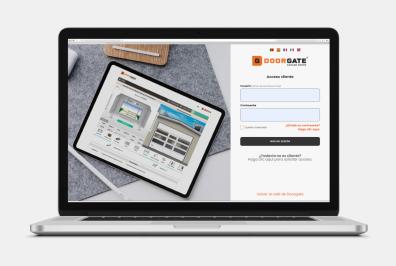

The Internet of Things Revolutionises the Automatic Door Industry
The industry increasingly uses IoT. It provides information about facilities without having to visit them. For example, if there’s a failure, maintenance technicians can remotely view the door’s status and the information they need to solve the problem, cutting response and repair times. And we can collect and analyse this data to build predictive maintenance models.
IoT (the Internet of Things) has more and more benefits and applications in the automatic door sector. As Boris Escandell, Strategic Project Assistant at Nayar Systems, points out, “It provides information about facilities without having to visit them.” In addition, “if there’s a breakdown, maintenance technicians can remotely view the door’s status and the information they need to solve the problem, cutting response and repair times.” And on top of all this, there is the fact that “we can collect and analyse this data to build predictive maintenance models to anticipate failures and improve the user experience.”
On the other hand, Escandell also relates this technological evolution to the fundamental role that the automatic door sector will play in urban areas. “There will be fewer free public car parks but more green and pedestrian areas. So, private garages are going to be the main solution to parking problems in many urban areas. “Optimising usage of parking spaces by applying IoT devices, such as Nearkey, will enable users to share garage spaces at different days and times, in an easy, fast and secure way.”
Custom Doors
Applying Internet of Things technologies is just one more example of the importance of digitalisation for the automatic door sector. Afonso Vieira is Sales Manager at HF Portas e Automatismos. He affirms that “The Internet offers enormous potential for our sector. It’s become an essential tool for communicating globally. Nowadays, working or selling locally or anywhere else in the world is the same thing.”
As an example of the extent to which it has revolutionised organisations and businesses, Vieira gives as an example that “drawing doors on a sheet of paper or waiting to arrive at the office to make a call or write to a supplier, compiling catalogues, placing orders and requesting certifications is a thing of the past.”
Aware of all this, HF Portas e Automatismos, which markets all its products under the Doorgate brand, has developed a web platform that offers very sophisticated possibilities in this regard. “In real time, customers can draw their custom door design with the colours and panels they prefer and directly get a quote and order. Then, in a matter of minutes, the production department has all these instructions, ready to make the door.”





